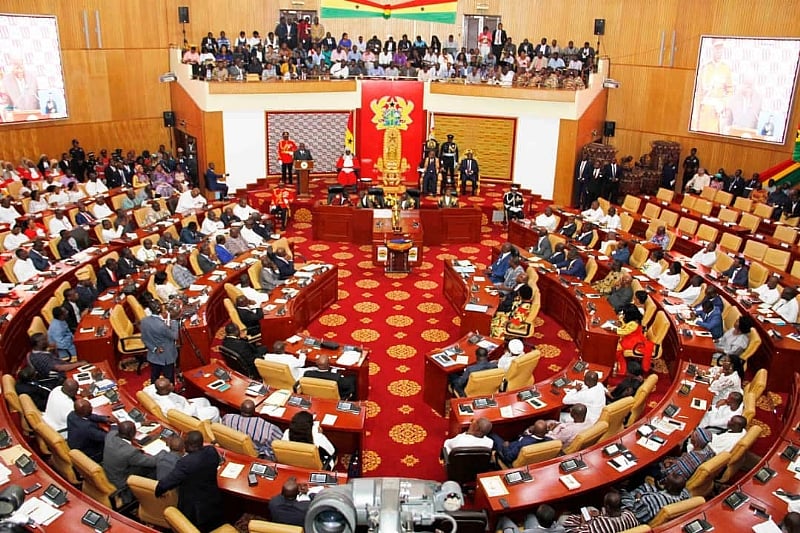The tragic drowning of seven students from Lawra Senior High School in the Black Volta River has ignited a national conversation about river safety in Ghana, particularly the urgent need for life jackets in river-dependent communities. Parliament has responded swiftly, summoning Interior Minister Muntaka Mubarak and Energy Minister John Jinapor to address the issue and propose solutions. The incident, occurring on June 13, 2025, highlights the perilous reality for many Ghanaians who rely on rivers, especially the Volta River and its tributaries, as essential transportation routes despite the inherent risks. The ministers’ appearance before Parliament is scheduled for the following week, underscoring the gravity of the situation and the demand for immediate action. The focus will be on identifying and implementing effective measures to prevent future tragedies, with emergency funding for life jackets being a central consideration.
The summons of Minister Jinapor, whose portfolio focuses on energy and green transition, extends beyond the immediate tragedy to encompass the broader safety concerns of all communities situated along the Volta River basin. The Volta River system, a vital resource for Ghana, plays a significant role in energy generation, transportation, and livelihoods. However, its vastness and unpredictable nature pose ongoing risks to those who depend on it. Minister Jinapor’s involvement signifies the government’s recognition of the need for a comprehensive approach to river safety, addressing not only the provision of life jackets but also potentially broader infrastructure improvements and safety education initiatives for communities throughout the Volta basin.
Parliament’s decisive action, spearheaded by Second Deputy Speaker Andrew Asiamah Amoako and Majority Chief Whip Rockson-Nelson Dafeamekpor, reflects the national urgency surrounding this issue. Their call for an allocation from the Interior Ministry’s budget to address this emergency underscores the commitment to providing immediate relief and preventative measures. The focus on budget allocation highlights the practical considerations involved in supplying life jackets to potentially numerous communities along extensive river systems. The proposal suggests that the government is willing to prioritize funding for this critical safety measure, recognizing the life-saving potential of readily available life jackets.
The plight of the affected communities is further amplified by the heartfelt plea from Bede Ziedeng, the Member of Parliament representing Lawra. His direct appeal to the National Disaster Management Organisation (NADMO), the Regional Coordinating Council, and the Lawra Municipal Assembly highlights the need for immediate local action to support the grieving families and the broader community. Ziedeng’s personal pledge to donate ten life jackets not only demonstrates his personal commitment but also serves as a symbolic gesture, encouraging wider community involvement and individual responsibility in promoting river safety. His call for legislative action further emphasizes the need for long-term solutions that extend beyond immediate emergency measures.
The incident and its aftermath highlight the complex interplay of factors contributing to river safety challenges in Ghana. The reliance on rivers for transportation in many communities often stems from limited infrastructure development, particularly the lack of accessible and affordable alternatives like bridges or roads. This reliance, coupled with the absence of readily available life jackets, creates a dangerous environment for those who must navigate these waterways daily. The tragedy underscores the urgent necessity for a multi-pronged approach involving immediate aid, long-term infrastructure development, and community-based safety education initiatives. The parliamentary response, driven by the urgency of the situation, aims to address these challenges through both emergency funding and legislative action, reflecting a national commitment to improving river safety for all Ghanaians.
Moving forward, the discussions in Parliament will likely revolve around several key areas. Determining the appropriate amount of emergency funding to be allocated for life jacket procurement and distribution will be a crucial aspect. This involves assessing the needs of various river-dependent communities, considering factors such as population size, river usage patterns, and existing safety infrastructure. Additionally, establishing a sustainable system for life jacket distribution and maintenance is essential to ensure long-term effectiveness. This might involve collaborating with local authorities, community leaders, and NGOs to establish distribution points, provide training on proper life jacket use, and implement regular maintenance checks. Finally, the legislative measures proposed by Ziedeng will likely involve establishing stricter regulations regarding river safety, potentially including mandatory life jacket use for all passengers on river transport, and increased oversight of boat operators to ensure adherence to safety standards. This multi-faceted approach, encompassing immediate aid, long-term infrastructure development, and community-based safety education, demonstrates a national commitment to preventing future tragedies and ensuring the safety of all Ghanaians who rely on the nation’s rivers.














